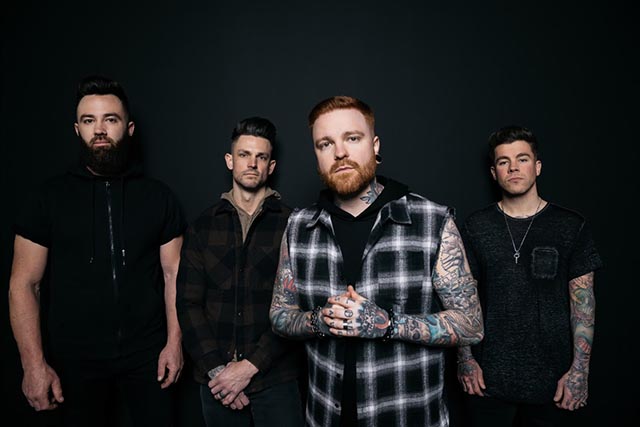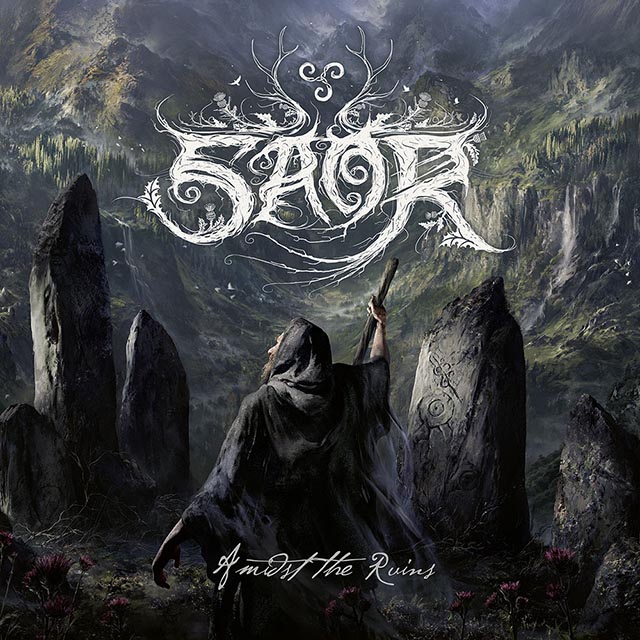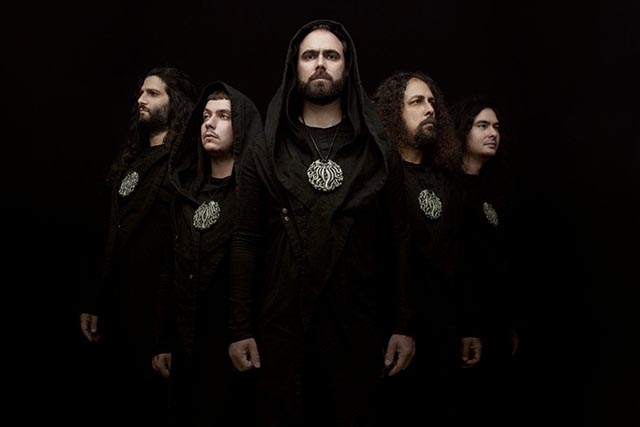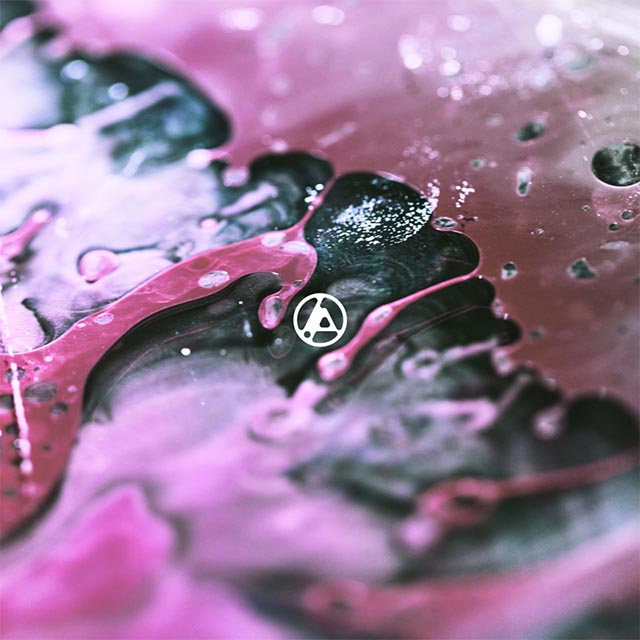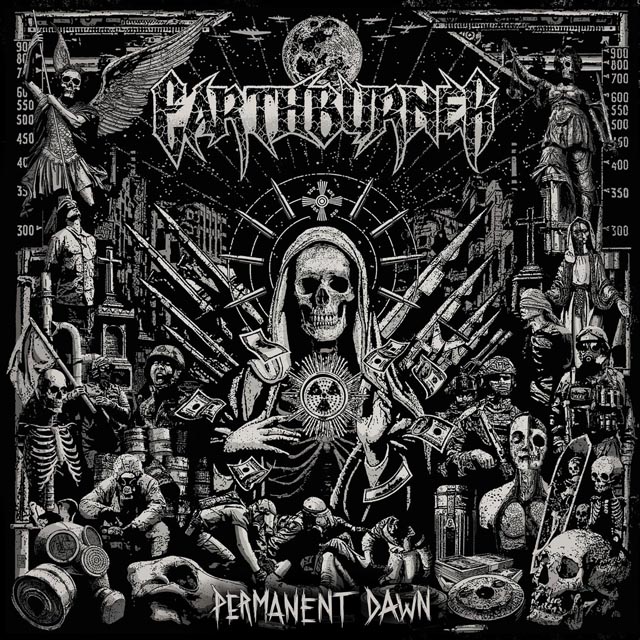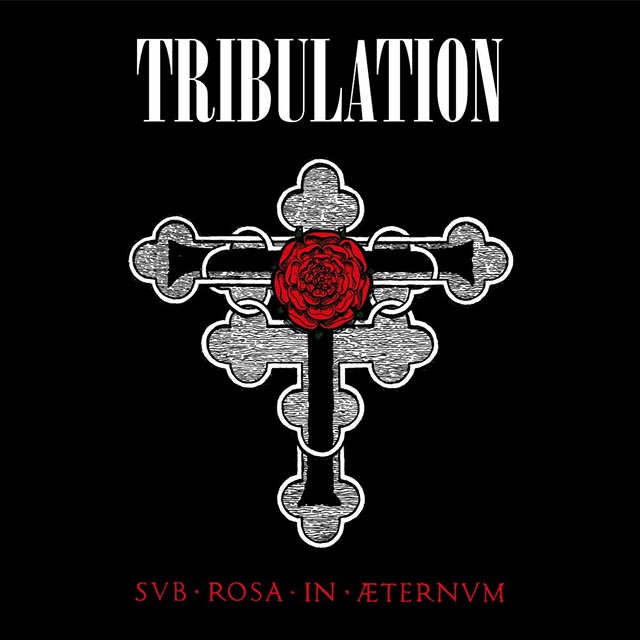 In 1988, New York City-based speedsters Riot released their definitive mission statement, the tempo-pushing cult classic Thundersteel, with then-new vocalist Tony Moore at the front. Moore and Riot followed that up with 1990’s The Privilege of Power before parting ways; though Riot never really disappeared, the lineup behind those two records is arguably one of the most revered in American metal history.
In 1988, New York City-based speedsters Riot released their definitive mission statement, the tempo-pushing cult classic Thundersteel, with then-new vocalist Tony Moore at the front. Moore and Riot followed that up with 1990’s The Privilege of Power before parting ways; though Riot never really disappeared, the lineup behind those two records is arguably one of the most revered in American metal history.
Moore and the other band members from that era – founding guitarist Mark Reale, longtime second guitarist Mike Flyntz, bassist Don Van Stavern and drummer Bobby Jarzombek – reconvened in 2008 to tour and ultimately recorded Immortal Soul, their first album together in 21 years. The response has been almost universal acclaim from both fans and critics, and Riot’s upcoming American tour in January, though presently limited to a handful of dates, will mark the record’s live debut. Metal Insider caught up with Moore over the phone from his rehearsal studio in Los Angeles, where he offered observations on the modern economics of touring, the band’s writing and recording process now and in the late 80s, and just who he thinks the real star of the Immortal Soul sessions is.
You’re down to tour for three dates in New York and Virginia, and then the five-day 70,000 Tons of Metal Cruise in Miami. What’s the plan from there? It seems like there’s a lot of support behind touring more.
That’s something we’re looking forward to spending some time talking about on the cruise. Since we’re going to have five days together, and we only have to play a couple of shows, we’ll have time to talk about exactly what we’re going to do in the future. Because what we’re discovering is that the response to the record has been great, but there are so many bands out there at our level. The market is kind of flooded. The economy is a disaster, both here and overseas – Europe, Japan – it seems like wherever our biggest fan bases are, the economy is making it really tough to put a tour together that makes money. The numbers that we’re getting from the festivals are really far from the mark, in terms of making it affordable for us to do them. I mean, we’re trying to come up with a plan; I don’t know if that means getting on a leg of a tour as a support act for a bigger name or something, we’re not sure. Right now, we picked a bad year to release a good record, and the world economy is making it hard to get out there. Our plan is to figure that out in January, and come up with a plan for spring.
You’re talking about how the economy’s really changed. What are some of the economic difficulties you’re running into compared to when Thundersteel and The Privilege of Power were out back in the day?
Well, back in the 80s, the market was booming. It was an illusion, because there was a huge crash in 88-89, but there was all of this fake money around, and we were on a major label (Columbia). So while we weren’t being treated like royalty, we did have access to some tour support. When we went out and toured the States, we could go out in a big tour bus and be comfortable, make enough money to survive, and it was all doable. But right now, it seems to be the exact opposite. The promoters are coming back to us with numbers that are just not workable. We can barely cover our flights. It’s a challenge, but it’s a challenge that hundreds of bands in our situation are facing. So we’ll come up with something! But the economic situation, and the difference between now and then, is pretty remarkable. And Japan has the additional challenge of still being in recovery mode since the earthquake and the tsunami. And for the fans too, it’s just a matter of discretionary income. Out of a hundred albums that come out this year, you’ve gotta pick and choose which ones you’re gonna buy, and it’s being reflected in what we’re seeing in terms of sales. Although overall, we’re pleased with how the album’s selling, and especially pleased overall with the critical response, we’re just dealing with the reality of a really bad overall world economy.
It seems like the critical response has been really positive; this record’s getting extremely strong reviews almost across the board. What prompted you guys to come back and make this record in the first place?
We’re not sure! (laughs) I’d have to think back…OK, I’d have to go all the way back to the early 2000’s. At that time, Riot was on Metal Blade, and (ex-vocalist) Mike DiMeo was singing, and the (2006 Riot album) Army of One lineup was together. Mark (Reale) gave me a call – I’m in Los Angeles now, but I was still living in New York at the time – and asked if I’d be interested in doing another record with the band. I said, “Sure, of course! I’ve had those songs in my head for years, so I’d love to get together.” So he said, “Great, let me talk to the guys about it.” Apparently, he went back to Metal Blade, and they were not enthusiastic about changing singers midstream. So that sort of fell to the back burner, but it put me and Mike Flyntz back in touch. We went ahead and did the Faith and Fire project, and that got us back in the mode of writing together. That was really super-fun; it was me and Mike and Danny Miranda from Queen + Paul Rodgers, and John Miceli, who is Meat Loaf’s drummer. So we self-produced an album (Accelerator) and released it back in 2006, and it did OK. We pretty much just put it up on CD Baby and promoted it as best we could.
Then a couple more years went by. I forget when the Thundersteel lineup all got together and floated the idea of doing the reunion thing, but as soon as we leaked the idea to some of the press, the response was overwhelming. We immediately got offered three dates in Japan, plus Sweden Rock and Metalway (in Spain), so we said, “Great! Let’s do these things and see how it goes over.” We got over to Sweden, and over 15,000 people showed up to see us. And the thing that amazed us was the age of the audience was about half what we expected it to be. We had our core original fans who were all in their 40s or older, but literally better than half the audience was kids in their 20s. So we discovered that somehow this music had been passed down to a new generation of fans, and I think that was what helped really generate the enthusiasm that kept us going to the point where we said, “Alright, let’s talk about doing an album.” There was some stuff written already back then in 2009, and we performed “Wings Are For Angels” in Texas (at the first reunion show in San Antonio) and Sweden and Japan. It went over great, and we were able to make deals with a couple of great indie labels pretty easily. We’re working with Avalon Marquee in Tokyo, and SPV/Steamhammer worldwide. They’ve been really great and super-supportive, and it came together so quickly and easily in terms of enthusiasm from the business end that we really didn’t have a choice. Plus, the technology has evolved so much in 20 years that we were able to record the album in five different studios and four different cities. We were never all in the room at the same time.
So everything was recorded in isolation then for each of your separate parts?
At the very beginning, four of the guys got together in Millbrook, NY and did the basics as the full rhythm section. I wasn’t there for that part, but after that, Don (Van Stavern) and Bobby (Jarzombek) went back to Texas, Mark and Mike went home to Long Island, and I went out to LA. I did a couple of recording sessions in New York, but I would say I did 50 percent of the recording out here in LA. My friend Joe Floyd, who’s one of the guitar players from Warrior, has a great studio out here called Silvercloud Recording, about 20 minutes down the beach from me in Redondo. He’s recorded Bruce Dickinson and Rob Halford, so he has some amazing mics and is a really artistic engineer to work with. So I did probably 50 percent of the vocals out here. I would take the song demos, put them on my laptop and take Garage Band into the rehearsal studio and just sing sketches, mix some sketches down, send them to the guys for their feedback. They’d circulate it, I’d tweak stuff until everyone was happy with the songs, then I’d go down to Joe’s and record them. And everybody else was doing the same thing! A lot of the drums, Bobby recorded at his home studio, same with Don and the bass. Mike actually did, I would say, 90 percent of the guitars on this particular album. Mark sort of took more of a producer role.
That’s interesting, because Mark tends to be seen as more of the focal point of the band.
Well, this time around on guitar, it’s all Mike. When you listen to those incredible, soaring harmonized double leads, that’s all him! He wrote all that stuff.
So is it Mike playing both guitars on this and Mark just producing, or is it Mark and Mike together with Mike doing most of the writing?
Mark was involved in the writing end up-front on a bunch of the tunes. He played some rhythm guitars and played a couple of solos, but he pretty much let Mike play on this one because Mike just has tremendous energy and a really good relationship with our engineer, Bruno Ravel from Danger Danger, who mixed and mastered the whole album. He had this incredible task of just taking all these audio files from five different studios and turning them into an album that sounded coherent, and he did an amazing job. But yeah, it’s all Mike on this. He wrote and arranged, I’d say, 90 percent of the guitars and played about 90 percent of them. It’s really his moment, and it was great just listening to that stuff develop.
That’s impressive, because his playing definitely sounds very much in the spirit of the classic days. Related to that, how did you manage to keep your voice in shape over these years? On some of these songs, you’re hitting a lot of the high notes that you had back in the Thundersteel era. How are you handling that? Are you doing different things with your voice now that you’ve gotten older?
No, I’m doing the exact same thing I did when I was in my 20s. I had the benefit of some really, really good teachers when I was a kid. To tell you a quick story about how I ended up in Riot that will give you some insight as to how I managed to put my voice together – because I’d never done anything like this before I met those guys – I was a bass player first and foremost, and I was just a working bass player in New York. I always sang, I always loved hard rock and heavy music, but I was just playing bass in a lot of pop bands, writing stuff in the vein of like Tears For Fears and stuff like that, and just trying to get a record deal in the 80’s like everybody else. I was in the studio where Riot did most of their recording (Manhattan’s renowned Greene St. Recording, now closed), and the studio manager – a good friend of mine, Dave Harrington – one day just brought me a cassette and said, “Listen! You’ve gotta listen to this song. I got you an audition. I know you can sing this stuff, this band needs a singer, they have a deal, they’re recording an album – just check this out! Take this home, check it out, learn the song, you’re gonna be in next week auditioning.” (laughs) So I took this cassette home, and it was “Thundersteel”! I nearly wet myself. I just thought, “What?”
To this day, I don’t know who actually was singing on that demo. But I took it to my teacher, a dear college friend of mine who was a coach for the Metropolitan Opera chorus, and I said, “We gotta do something here.” She knew I sang; I’d been studying with her for quite a while already, but I said, “Listen, I need to learn how to navigate this range semi-consistently. What are we gonna do?” So we got to work, and she developed a regimen for me to help extend my range into those freaking bird notes. But I only had like a week to practice the song, and I went into the studio and I really thought that I had just sucked. But Mark heard something – I think he heard it more in the quality of my voice than in the actual performance that day – that made him decide I could do the job. And so I got flung right into the recording of Thundersteel. It was already happening, and most of the stuff was written. I contributed some lyrics and vocal arrangements, but for the most part, all of that stuff was pretty much nailed down when I came on board. That’s how that all happened!
The vocal regimen of warm-ups and exercises and tips and tricks, and things to do and avoid, that I developed back then are the exact same things I’m doing now. To be honest, the fact that I’ve been out of the scene for so long and not out there doing it year after year has probably helped preserve my voice more than anything else! But like I said, I’m in the practice studio now getting ready – I have like four weeks to get ready for these shows, and I usually give myself 4-6 weeks to do it – and I just go straight back to those old exercises, the same stuff I’ve been doing for 25 years, and it works every time.
It sounds like you got handed one hell of a regimen.
It’s pretty intense. When I first started doing this stuff a quarter of a friggin’ century ago, I would come out of my lessons sweating like I had just done a set. It’s very, very intense; strictly operatic, power-building, range-building, stamina-building exercises, the same stuff that people on Broadway or in the opera would use. Very similar to that, and strictly classical, which is my background anyway.
What were some of the lyrical focuses on the record? “Wings Are For Angels” seems to be highly topical.
There’s a long story to that song, but I’ll try to put it in a nutshell. A few years back right after Faith and Fire, maybe around ’06 or ’07, I did this album with a phenomenal young Japanese guitarist named Takayoshi Ohmura. He’s this amazing shredmeister, and his people contacted me and said that he had a bunch of songs written, but would I write some lyrics and melodies for a couple of the songs? So the album was called Emotions in Motion, and he had a song with a working title called “Holy Tomorrow.” I decided to go with that, and I wrote it from the viewpoint of a father in Iraq who had lost his whole family, who had lost his house, everything to the Iraq War. He was fleeing his hometown, running from his own people who had turned against him. He actually sings in that tune some of the same lyrics in the first verse as “Wings Are For Angels.” In “Wings Are For Angels,” it’s the exact same place in time, except the voice, the character, is an American helicopter pilot. He starts out with the exact same lyrics in the first verse. “Wings Are For Angels” is actually a long bookend to that song I wrote for Takayoshi.
Substance abuse also comes up in some of this stuff, like “Sins of the Father” and “Whiskey Man.” What was some of the inspiration behind that?
Well, “Sins of the Father”…oh boy, here we go! “Sins of the Father” has to do with the current clinical mindset in dealing with chronic depression in humans. You know, I’m amazed by ads for drugs I see on TV that say, [impersonating television announcer] “Wellbutrin is thought to work by blocking a certain chemical in the brain, blah blah blah…” And it’s like, “Oh really, that’s the best you’ve got? It’s thought to work this way?” Basically what they’re saying is, “If this stuff doesn’t make you suicidal, it just might help you!” So yeah, “Sins of the Father” is sort of a meditation on psychotropic and mood-altering drugs, let’s put it that way.
“Whiskey Man,” though, is just fun! I was in a cover band back in the 80’s, and the drummer’s nickname was Whiskey Man. And that came about because when he went home to his wife and she found the car parked on the lawn and the oven left on and the cat running down the street, he’d get up in the morning and say, “No, that wasn’t me, that was Whiskey Man!” I just had a little fun with that, and I’d had those lyrics kicking around for probably 20 years.
How much of this was written before you guys went into the studio and started working on the album? Was there a lot of writing when you were actually composing the parts and putting them all together, or was it one of those situations where you had probably 80 percent of the record written before you even hit the door?
I would say it’s toward the latter. A lot of this stuff, at least a lot of the licks – the basic ideas for a lot of the songs were solidified in late 2009. And then bit by bit the arrangements came about, and then the guys bounced stuff off each other. But really, it took a couple years for it all to come together. Most of this stuff was written by the time we came back from Japan, and it took a while for us to get it in gear and get the business end all tied up. But then, it was just about exactly a year up to the record’s release in mid-October that we were all working pretty much full-time on nailing the stuff down, and writing and arranging and perfecting. So it took about a year to fully put the album together.
Are you going to try to keep making records from here? Do you guys have a long-term plan figured out?
Oh sure! Riot is absolutely gonna do another album, because first of all, we had so much stuff written for Immortal Soul that we’ve got half of the next record written already. Everything from some basic ideas and licks to completely arranged songs; not that it’s all recorded, but all the sketches are there, the parts are there. We had so much material that we had a really tough time deciding what to put on the album, and we had to let so many people listen to so much stuff to help us decide which songs would make the final cut. But yeah, we’ve got a ton of material! These guys write so prolifically, it’s ridiculous. I was completely overwhelmed when they sent me the first song sketches; there were like 20 freaking songs! I was like, “Oh my God!” I just said, “Alright, I’m going to take them in order and write them one at a time and see what happens.” And I was writing straight up until the very last vocal session. I’d change things in the studio as we go; as soon as they roll the take, I’m erasing stuff, I’m saying, “Wait, wait wait, hold on!” I’ll change a syllable, I’ll change a word, and then I’ll change a whole line. The writing process went right up until a few days before we delivered it.
Are you trying to do another record within the next year or two, or are you going to try holding it off for a minute depending on tours?
We’re gonna let the album do what it does, because we have the right people behind it. We were shocked at how well-received it’s been. We were ready for anything from, “Oh my God, this is a bunch of dated crap,” to, “Why did they bother?” We were not ready for this consistently positive response, so we’re just going to let the record do what it does. I’m not to the point where I can listen to it yet, because I’m still listening critically to every note; of course it’s too late for all of that! So I haven’t really evaluated this stuff in terms of where it sits in my progression of songwriting and what I want to do next. I’m going to have to just digest that and wait and see. But the guys already have so much other stuff written that I can start right now – well, actually I have started a bunch of stuff for the existing tunes. So yeah, the follow-up will probably be fairly quick. Since both of the labels we’re working with have options for another album, they’ll tell us when the market’s ready because we haven’t done enough with Immortal Soul yet. It’ll be next month when we debut it live, so we’ll see where it goes from there.

